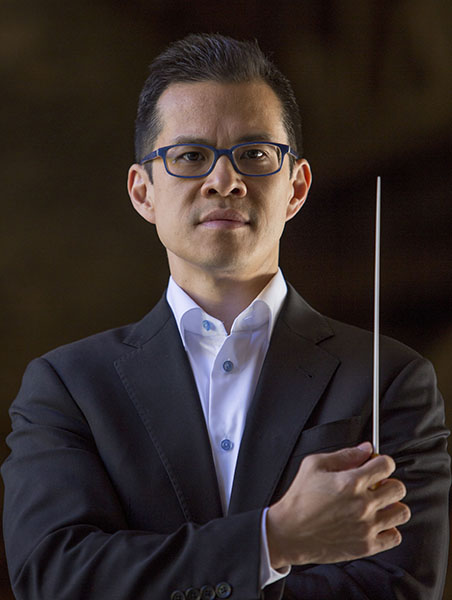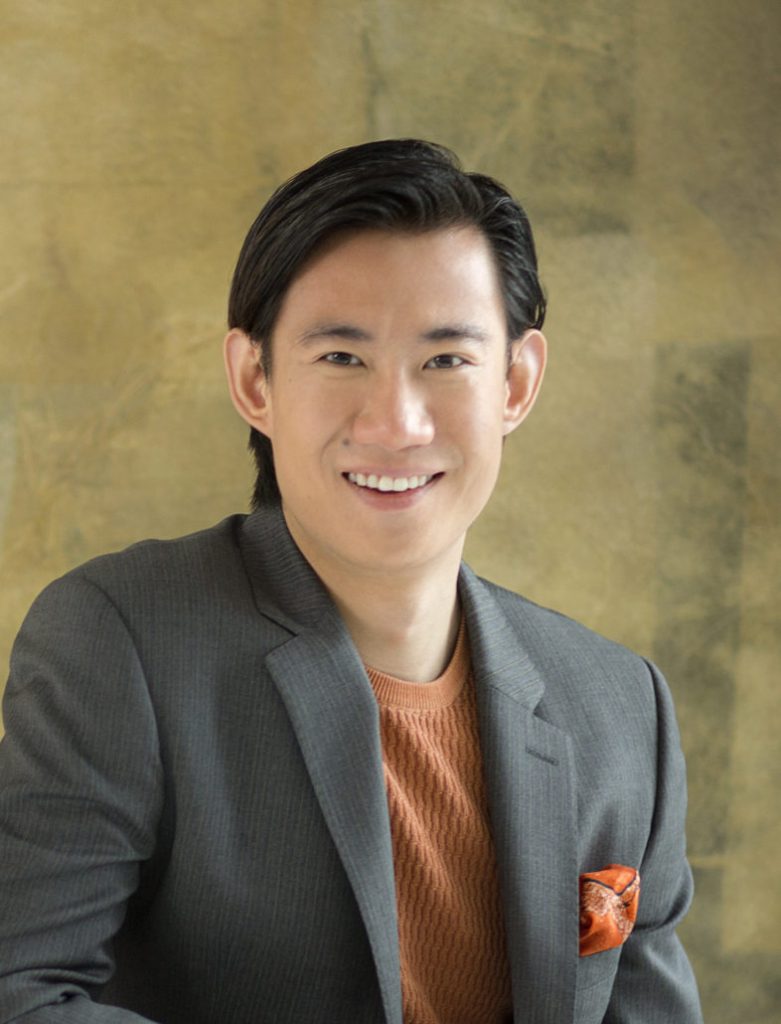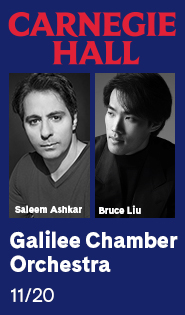Montclair Orchestra shines brightest in Haydn, Bizet

David Chan conducted the Montclair Orchestra Sunday afternoon.
The Montclair Orchestra rose above a rocky outing with Berlioz’s Les nuits d’été Sunday night to show again that it is The Developmental Orchestra That Could.
Formed just two years ago in Montclair, New Jersey, as a project to pair veteran musicians with promising students—and led by David Chan, the longtime concertmaster of the Metropolitan Opera Orchestra—this suburban ensemble has raised its performances to a level that many an all-pro orchestra might envy.
The orchestra’s “French Connection” program of French and French-inspired music acquired extra significance after the recent disastrous fire in Paris’s Notre-Dame Cathedral, which reminded one how large French history and culture loom in the minds of people everywhere. (The orchestra announced on its website that ten percent of the proceeds of Sunday’s concert at St. Luke’s Episcopal Church in Montclair would be donated to a fund for rebuilding the cathedral.)
As an example of that influence reaching into a remote Austrian country estate, the orchestra led off on Sunday with Haydn’s Symphony No. 60, “Il distratto”—actually six movements of incidental music to a production of the play Le Distrait by Jean-François Regnard, who is considered second only to Molière among 17th-century French comic poets.
Haydn was, of course, one of the supreme musical wits of all time. However, Regnard’s play—whose scatterbrained protagonist provides ample evidence that ADHD existed long before we had a name for it—inspired in him, not French-style repartee, but a generous helping of Austrian slapstick, first cousin to Mozart’s rustic A Musical Joke.
On Sunday the symphony’s first movement, originally the overture to the play, opened impressively enough with a grand Adagio, but the Allegro that followed had trouble deciding what meter it was in, and kept losing its train of thought in a hesitant diminuendo, only to find it again with a subito-forte “Aha!” Under Chan’s brisk direction, all these sidetracks got their comic due, yet managed to cohere into sonata form.
The conductor’s deadpan delivery and the orchestra’s crisp execution continued to mine comic gold for five more movements: a misshapen Andante, a Menuetto made of disparate themes thrown together, an inexplicably furious Presto, an Adagio “di Lamentatione” interrupted by a marching band and dancing peasants, and a Prestissimo finale that was over almost before it started.

Yunpeng Wang
It was daring to follow this “P.D.Q. Haydn” with the delicate nuances and vaporous scoring of Les nuits d’été, and also to assign the solo role to a baritone instead of the usual mezzo-soprano. Still, this has always been something of a “pants role” anyway, since the poet Gauthier’s text is in a man’s voice, referring to the beloved as “she.” And one imagined a dose of manly swagger might bring a different color to the continent-hopping ocean voyage depicted in the exhilarating final song, “L’isle inconnu.”
But Sunday’s audience would have to wait to find out, as the wooden performance by baritone Yunpeng Wang offered few interpretive rewards. Wang’s hard, slightly buzzy voice appeared capable of filling spaces larger than the medium-sized church, but not of modulating itself to address a close-up audience with a small orchestra.
At a level of mezzo forte and up, which is where he sang most of the performance, Wang easily eclipsed the orchestra behind him, and one had to be content with the occasional flash of woodwinds or swoop of strings that managed to get through.
Conductor Chan, who in his day job has spent years observing the best opera conductors at work, watched Wang closely for signs of phrasing he could support, but the singer’s poor command of French gave him little to work with. As a result, even when the orchestra played by itself for a few bars, it sounded a little lost and tentative.
Things looked up a bit in the last two songs, with the orchestra’s gentle pulse helping the singer shape his long notes in “Au cimetière: Clair de lune,” and Wang indeed bringing a touch of bluff energy to “L’isle inconnu.”
Hoping for better days in Romantic repertoire, the ensemble turned to the clean, neoclassical lines of Bizet’s Symphony in C. (This form of the title originated not with the composer but with choreographer George Balanchine, whose classic ballet made it as iconic as Gershwin’s Concerto in F.)
Perhaps suffering from a Berlioz hangover, this usually smart ensemble launched into Bizet’s opening Allegro vivo in a tumble of out-of-time rhythms and it took most of the movement to settle on a steady, snappy tempo. Woodwinds gleamed gorgeously in the development section, however, as they would many times in subsequent movements.
In the Adagio, Tamara Winston’s luxuriantly curling oboe solo and the passionate soar of violins made it easy to understand why Tchaikovsky admired Bizet above all other composers of his day. The doubly-titled Menuetto (Scherzo) was all attack and bracing rhythm, the first movement’s unsteadiness forgotten; in the trio, contrasting textures of silky strings and chirping woodwinds made a tasty dish.
A blindingly fast chatter of 16th notes drove the Allegro vivo finale, either as a hot toccata in the foreground or as an unwavering pulse under graceful themes. Without varying the tempo, Chan managed the music’s sense of momentum, bringing everything to a head at the humorous—one might say Haydnesque—conclusion.
The Montclair Orchestra will announce its 2019-20 season in mid-May. montclairorchestra.org; 973-435-2906.


